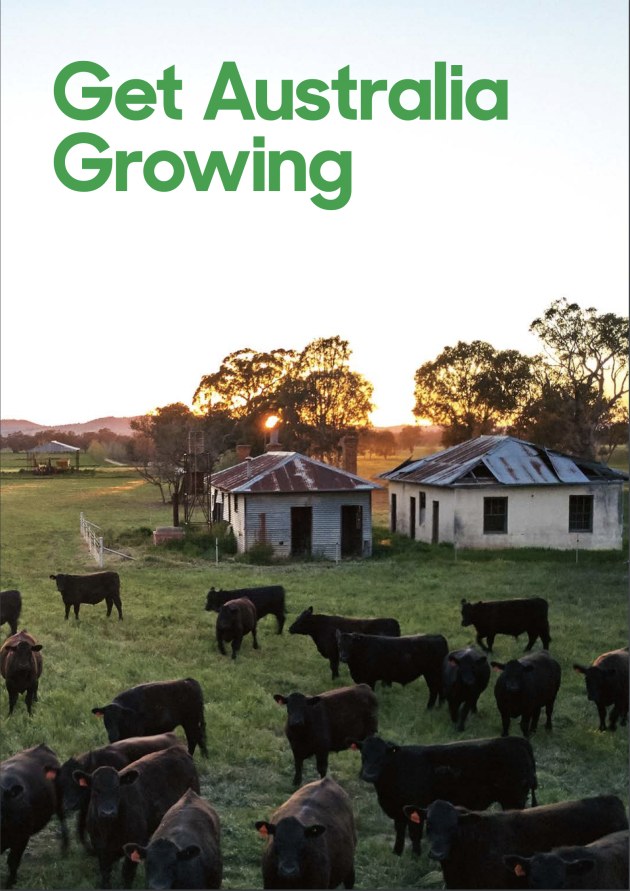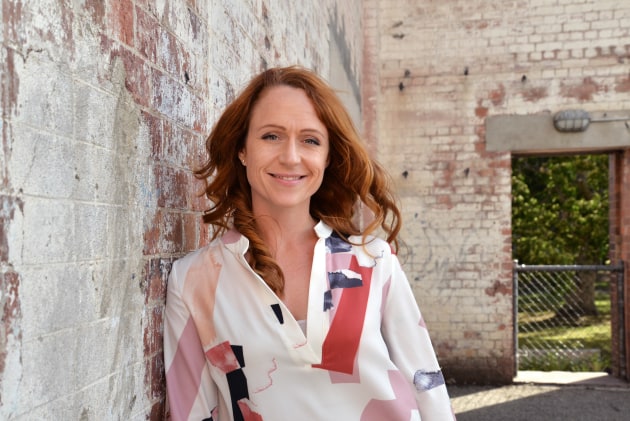The National Farmers’ Federation has called for the reinvigoration of manufacturing in regional areas and consistent regulation for organic farming in its latest policy document Get Australia Growing.
Launching the strategy at the National Press Club on 14 June, NFF president Fiona Simson said the strategy vacuum around the public and private investment needed to get Australia humming had to end.

“Business needs incentives and support to combat unfair and targeted competition from overseas manufacturers and remain in Australia long-term,” Simson said.
“Manufacturing assets commissioned decades ago need updating. These assets produce products that go to the heart of our ability to produce food.
“Modern plants are more energy efficient, higher yielding and automated. Capital investment is required to keep these assets in Australia.
“Make no mistake – this is not about subsidies it’s about a genuine partnership between all levels of government and business to strengthen our supply chain, build communities and grow the economy in a competitive and market driven approach.
“Many Australian-owned, regionally based food factories are using out of date technology that is labour, water and energy intensive. The tide is changing – slowly. New automated technologies and smarter approaches to energy are emerging.
“But, an injection of public and private capital to fund the adoption of advanced technology is needed to put viable large-scale manufacturing within reach. This is especially true for the energy sector where plans for technology and innovation need to only to be developed, but to be implemented.”
Simson said government across all tiers needs to play a key role in creating more favourable conditions for such investment and that, “a properly resourced plan to improve the competitive environment for local manufacturers – particularly in regional Australia – must form part of our COVID recovery.”
Ms Simson said the Commonwealth’s Regional Deals program has the potential to provide this coordination, but it must be more ambitious and collaborative.
“When done right, Regional Deals should be the overarching framework to align – across local government and state borders – transport, manufacturing, telecommunications, energy generation, education, labour, health, cultural, indigenous and social amenities.
“We set a challenge for the government: get the design and delivery of Regional Deals right, and back it up with a multi-billion-dollar investment in the fast-tracked delivery of 20 new Deals.”
Get Australia Growing makes 35 recommendations including:
– fast-track 20 new Regional Deals;
– reinvigorate regional manufacturing;
– create a $1 billion Biodiversity Stewardship Fund;
– slash red and green tape;
– fix the Murray Darling Basin Plan;
– get our regions digitally connected; and,
– help us get more people into jobs in agriculture.
Simson said Australia must remain a strong global citizen, overcome inevitable differences at the geo-political level and grow its international relationships.
“The outlined priorities are not new nor are they ground-breaking, but they are achievable and will genuinely stimulate new activity and employment in our sector.
“When farmers do well Australia does well. Regional Australia played a key role in staving off a recession during the GFC, and it can play a leading role again as we recover from COVID-19.”
The full strategy can be read here.
Organic Industry applauds NFF strategy
One of the recommendations in Get Australia Growing was:
Implement consistent regulation for organic farming Australia is currently the last developed nation to have a consistent approach to organic production. The inconsistent approach limits market access for Australian organic producers, affects consumer confidence and increases the economic burden on industry. The Commonwealth Government should progress domestic regulation for organic production as a priority.
Industry body Australian Organic has welcomed the NFF’s call, saying its recommendation meant the NFF, organics industry and government could have an open dialogue on industry regulation in 27 years.

AO CEO Niki Ford said the body had been pushing to mandate domestic regulation over the last 18 months.
“The National Standard for Organic and Bio-Dynamic Produce was originally written with the intention to be enforced domestically when it was announced back in 1992, but due to unknown reasons this never occurred.
“Having the support of the NFF is enormously important to progressing the discussion. Through our ongoing collaborations with government and key industry stakeholders, we are confident that we will reach an outcome that is beneficial to the Australian economy and the Australian organic industry,” Ford said.
The lack of standard regulation had been “enormously limiting’ for the industry, allowing misleading products to enter the market as well as onerous costs coming from separate fees to different markets.
“If we could mandate domestic regulation, it would enable our industry to thrive exponentially and provide growth for Australian agriculture.”
The Australian organic industry is currently worth $2.6 billion, growing year on year. In 2018 domestic sales grew 15 per cent versus the previous year, while export tonnage was up 13 per cent over the same period.
According to the Australian Organic Market Report 2019: six out of 10 shoppers purchased organic product in the past 12 months; 55 per cent of shoppers would choose an organic product with a certification mark in a like for like purchase; and 51 per cent recognise the Bud logo as the mark of Australian Certified Organic.





